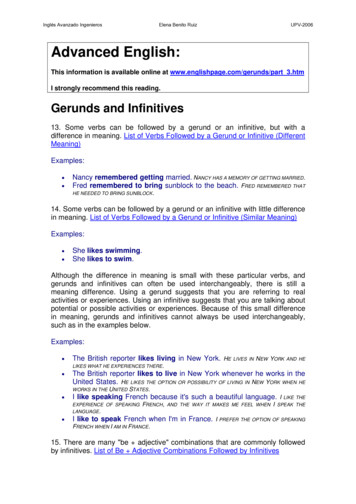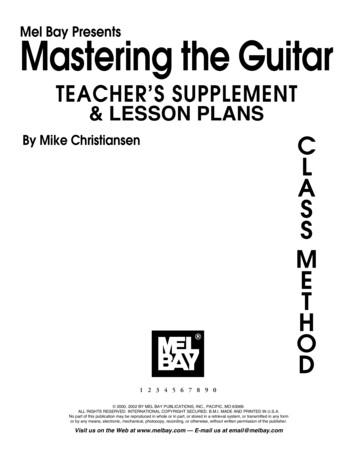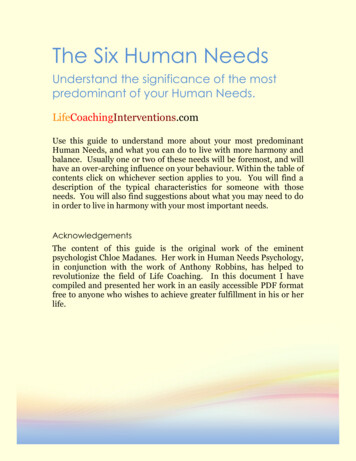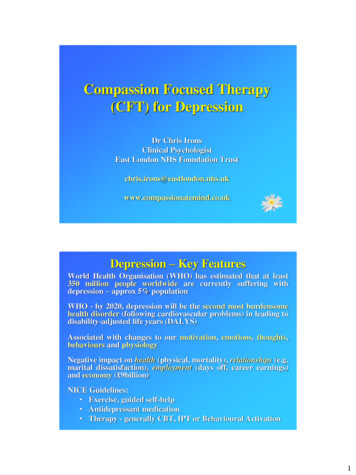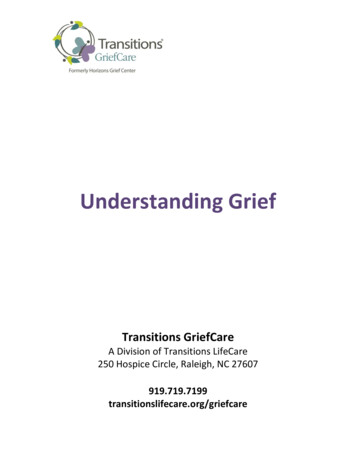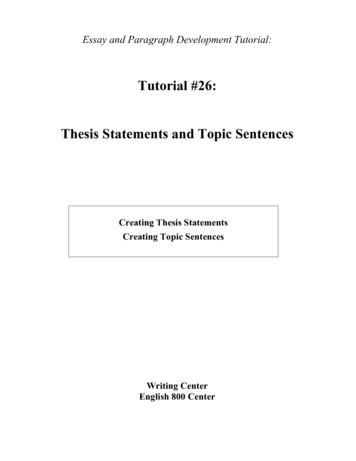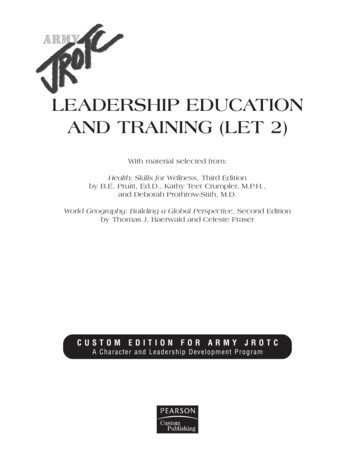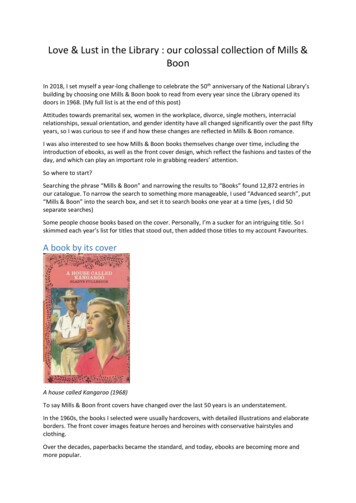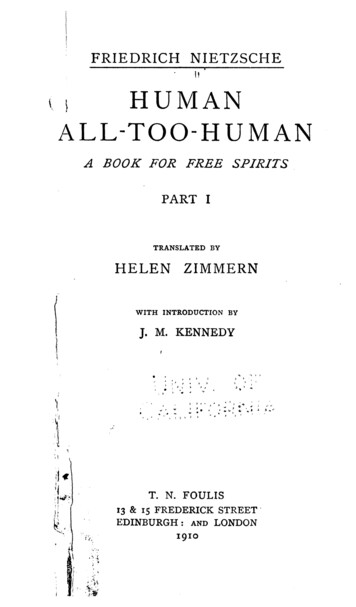
Transcription
F RI E DRI CH N I E T Z S C H EiHUMANA L L -T O O -H U M A NA BOOK FOR FREE SPIRITSPART ITR ANSLATED BYHELENZ I MME RNW ITH INTRODUCTION BYJ. M. KENNEDYif*itIf.T. N. FOULIS13 & 15 FREDERICK STREETEDINBURGH: a n d LONDON1910
ALL RIGHTS RESERVEDPrinted, by Mo r r is o n& G ib b Lim it e d, Edinburgh
CONTENTS.PAG EI n t r o d u c t io n----v iiA u t h o r ’s P r e f a c e---iF ir st D i v i s i o n : F ir st a n d L a st T h in g s-13S econ d D ivisio n : T h e H is to r y o f t h e M o r a lS e n tim e n t s----53T h ir d D i v i s i o n : T h e R e lig io u s L i f e I F o u rth1D iv isio n : C o n c e r n in g t h eA r tis ts and A u th o r s --h iSoulof--153F if t h D i v i s i o n : T h e S igns of H ig h e r a n dL o w er C u l t u r e--( S ix t h D ivisio n : M a n in S o c ie ty S e v e n t h D ivisio n : W if e a n d C h ild--207--267--295-317-355-409E ig h th D i v i s i o n : A G la n c e a t t h e S t a t e N in t h D i v i s i o n : M a n a l o n e b y H im se lfA n E po d e — A m ong F r ie n d s- A;rvS247073
INTRODUCTION.NIETZSCHE’S essay, Richard Wagner in Bayreuth,appeared in 1876, and his next publication washis present work, which was issued in 1 878.Acomparison of the books will show that the twoyears of meditation intervening had brought abouta great change in Nietzsche’s views, his style ofexpressing them, and the form in which they werecast. The Dionysian, overflowing with life, givesway to an Apollonian thinker with a touch of jpessimism. The long essay form is abandoned,and instead we have a series of aphorisms, sometinged with melancholy, others with satire, several,especially towards the end, with Nietzschian witat its best, and a few at the beginning so veryabstruse as to require careful study.Since the Bayreuth festivals of 1876, Nietzschehad gradually come to see Wagner as he reallywas. The ideal musician that Nietzsche had pic tured in his own mind turned out to be nothingmore than a rather dilettante philosopher, anopportunistic decadent with a suspicious tendencytowards Christianity.The young philosopherthereupon proceeded to shake off the influencewhich the musician had exercised upon him.He was successful in doing so, but not without aI
viiiINTRODUCTION.struggle, just as he had formerly shaken off theinfluence of Schopenhauer. Hence he writes inhis au tobio grap h y# “ Human, all-too-Human, isthe monument of a crisis.It is entitled: ‘ Abook for free spirits/ and almost every line in itrepresents a victory— in its pages I freed myselffrom everything foreign to my real nature. Ideal ism is foreign to m e : the title says, ‘ Where you seeideal things, I see things which are only— humanalas ! all-too-human ! ’ I know man better— theterm ‘ free spirit ’ must here be understood in noother sense than th is: a freed man, who has oncemore taken possession of himself.”The form of this book will be better under stood when it is remembered that at this periodNietzsche was beginning to suffer from stomachtrouble and headaches. A s a cure for his com plaints, he spent his time in travel when he couldget a few weeks’ respite from his duties at BaselUniversity ; and it was in the course of his solitarywalks and hill-climbing tours that the majority ofthese thoughts occurred to him and were jotteddown there and then. A few of them, however,date further back, as he tells us in the preface tothe second part of this work. Many of them, hesays, occupied his mind even before he publishedhis first book, The B irth o f Tragedy, and severalothers, as we learn from his notebooks and post humous writings, date from the period of theThoughts out o f Season.It must be clearly understood, however, that*Ecce Homo , p. 75.
INTRODUCTION.ixNietzsche’s disease must not be looked upon inthe same way as that of an ordinary man. Peopleare inclined to regard a sick man as rancorous;but any one who fights with and conquers hisdisease, and even exploits it, as Nietzsche did,benefits thereby to an extraordinary degree. Inthe first place, he has passed through several stagesof human psychology with which a healthy manis entirely unacquainted; eg. he has learnt byintrospection the spiteful and revengeful spirit ofthe sick man and his religion. Secondly, in hismoments of freedom from pain and gloom histhoughts will be all the more brilliant.In support of this last statement, one instancemay be selected out of hundreds that could beadduced.Heinrich Heine spent the greaterpart of his life in exile from his native country,tortured by headaches, and finally dying in aforeign land as the result of a spinal disease.His splendid works were composed in his momentsof respite from illness, and during the last yearsof his life, when his health was at its worst, hegave to the world his famous Romancero. W ewould likewise do well to recollect Goethe’ssayin g:Zart Gedicht, wie Regenbogen,W ird nur auf dunkelm Grund gezogen.*Thus neither the form of this book— sostartling at first to those who have been broughtup in the traditions of our own school— nor the* “ Tender poetry, like rainbows, can appear only on adark and sombre background.”— J. M. K.
XINTRODUCTION.fact that the writer was in poor health (theaverage Englishman may be reminded that theremay be mens nulla in corpore sand) should deterus from perusing it as carefully as we can. W emay be sure of an adequate reward; for here noabstract philosopher is discoursing, no harmlessdealer in “ isms ” and “ ologies ”— but a man ofthe world, who had previously to writing comeinto contact with some of the best men and womenof his tim e; who had travelled a great deal, andespecially in the south; and who had finallyeven reached the much-beloved home of all greatGerm ans: Ancient Greece. From Greece Nietz sche brought back his standard measure, hisinfallible scales, which may be compared to thoseof the Goddess of Justice, and in which moderninstitutions, parliaments, states, and religions wereweighed by him, found wanting, and severelycensured.Is Hellenism, however, an ideal suitable foreverybody ? Does not a commercial country likeours still stand in need of the earnest gloom ofPuritanism rather than of the dazzling sun of Hel lenic beauty ? The darker and more strict creedhas at least the advantage of keeping men in thenarrow path leading to duty and honesty, andmay help to turn them away from the success-atall-costs h unt; while, on the other hand, the morehuman and beautiful ideal, if preached to thewrong congregation, may destroy the smallervirtues of Christianity and render it impossible torear the higher virtues of Hellenism in its stead.The danger is worth pointing o u t: nothing, indeed,
INTRODUCTION.xicould be more fatal than a proposal which theEditor of this series has had from an Americanpublisher, viz., to bring out a “ Nietzsche in aNutshell, so that the general public may knowwhat it is all about.” No ; it might be better thatbusiness people— the less educated of them, at allevents— should not know what it is all about.The great exhaustion, necessarily brought aboutby the modern commercial death-and-life strugglefor existence, is the worst possible condition inwhich a man can read Nietzsche. The aphorismsin this book are essentially for an order of mindswhich can afford otium\ but sine dignitate ifpossible— for the British “ dignity ” is anotherobstacle in the path leading to a complete under standing of our author. Indeed, these aphorismswould be much out of place, and might be quitefalse, if applied in other directions. Take, forexample, No. 434, containing the now celebrateddictum that women always intrigue in secretagainst the higher souls of their husbands. Whilethis statement is correct as applied to artists, it isobviously not intended for business-men, whosewives in many instances spur them on— not tophilosophy or art, but to money, comfort, andworldly success.But statesmen and politicians, who, no matterwhat may be thought to the contrary, requirenew ideas occasionally, will find much to interestthem here. They seem to have a certain difficultynowadays in meeting the argument of Socialism.In aphorism 4 5 1, Nietzsche gives them a hint.The governing classes, says he, can, if they choose,
xiiINTRODUCTION.treat all men as equals, and proclaim the establish ment of equal rights:so far a socialistic mode of thought which is based on jtisticeis possible; but, as has beren said, only within the ranks ofthe governing classes, which in this case practises justicewith sacrifices and abnegations. On the other hand, todemand equality of rights, as do the Socialists of the subjectcaste, is by no means the outcome of justice, but of covetous ness. If you expose bloody pieces of flesh to a beast, andthen withdraw them again until it finally begins to roar, doyou think that the roaring implies justice?Theologians on the other hand, as may beexpected, will find no such ready help in theirdifficulties from Nietzsche. They must, on the'contrary, be on their guard against so alert anadversary— a duty which they are apparently notgoing to shirk; for theologians are amongst themost ardent students of Nietzsche in this country.Their attention may therefore be drawn to aphorism630 of this book, dealing with convictions and theirorigin, which will no doubt be successfully refutedby the defenders of the true faith. In fact, thereis not a single paragraph in the book that does notdeserve careful study by all serious thinkers. 1On the whole, however, this is a calm book, andthose who are accustomed to Nietzsche the out spoken Immoralist, may be somewhat astonishedat the calm tone of the present volume. The e x planation is that Nietzsche was now just beginningto walk on his own philosophical path. His life long aim, the uplifting of the type man, was still inview, but the way leading towards it was once moreuncertain. Hence the peculiarly calm, even melan
INTRODUCTION.xiiicholic, and what Nietzsche himself would callApollonian, tinge of many of these aphorisms, sodifferent from the style of his earlier and laterwritings. For this very reason, however, the bookmay appeal all the more to English readers, whoare of course more Apollonian than Dionysian.Nietzsche is feeling his way, and these aphorismsrepresent his first steps. A s such— besides havinga high intrinsic value of themselves— they areenormous aids to the study of his character andtemperament.J. M. K E N N E D Y .
PREFACE.I'bI.I HAVE been told frequently, and always withgreat surprise, that there is something commonand distinctive in all my writings, from the Birtho f Tragedy to the latest published Prelude to aPhilosophy o f the Future. They all contain, I havebeen told, snares and nets for unwary birds, andan almost perpetual unconscious demand for theinversion of customary valuations and valuedcustoms. W hat? Everything only — human —all-too-human ? People lay down my writingswith this sigh, not without a certain dread anddistrust of morality itself, indeed almost temptedand encouraged to become advocates of the worsithings: as being perhaps only the best dis paraged ? My writings have been called a schoolof suspicion and especially of disdain, more happily,also, a school of courage and even of audacity.Indeed, I myself do not think that any one hasever looked at the world with such a profoundsuspicion; and not only as occasional Devil's*Advocate, but equally also, to speak theologically as enemy and impeacher of G o d ; and hei Whcx'realises something of the consequences iniiadjyedyyoL. i.A
2PREFACE.in every profound suspicion, something of thechills and anxieties of loneliness to which everyuncompromising difference o f outlook condemnshim who is affected therewith, will also understandhow often I sought shelter in some kind ofreverence or hostility, or scientificality or levityor stupidity, in order to recover from myself, and,as it were, to obtain temporary self-forgetfulness;also why, when I did not find what I needed, Iwas obliged to manufacture it, to counterfeit andto imagine it in*a suitable manner (and what elsehave poets ever done? And for what purposehas all the art in the world existed ?). What Ialways required most, however, for my cure andself-recovery, was the belief that I was not isolatedin such circumstances, that I did not see in anisolated manner— a magic suspicion of relationshipand similarity to others in outlook and desire, arepose in the confidence of friendship, a blindnessin both parties without suspicion or note of inter rogation, an enjoyment of foregrounds, and surfacesof the near and the nearest, of all that has colour,epidermis, and outside appearance. Perhaps Imight be reproached in this respect for much “ art ”and fine false coinage ; for instance, for voluntarilyand knowingly shutting my eyes to Schopenhauer’sblind will to morality at a time when I had becomesufficiently clear-sighted about m orality; also fordeceiving myself about Richard Wagner’s incurableromanticism, as if it were a beginning and not anend ; also about the Greeks, also about the Germansand their future— and there would still probablybe quite a long list of such alsos? Supposing
PREFACE,3however, that this were all true and that I werereproached with good reason, what do you know,what could you know as to how much artifice ofself-preservation, how much rationality and higherprotection there is in such self-deception,— andhow much falseness I still require in order to allowmyself again and again the luxury of my sincerity ?. . . In short, I still liv e ; and life, in spite ofourselves, is not devised by m orality; it demandsillusion, it lives by illusion . . . butThere !I am already beginning again and doing what Ihave always done, old immoralist and bird-catcherthat I am,— I am talking un-morally, ultra-morally,“ beyond good and evil ” ? . . .2.Thus then, when I found it necessary, I inventedonce on a time the “ free spirits,” to whom thisdiscouragingly encouraging book with the titleHuman, all-too-Human, is dedicated. There areno such “ free spirits ” nor have there been such,but, as already said, I then required them forcompany to keep me cheerful in the midst of evils(sickness, loneliness, foreignness, — acedia, inac tivity) as brave companions and ghosts with whomI could laugh and gossip when so inclined and sendto the devil when they became bores,— as com pensation for the lack of friends. That such freespirits w ill be possible some day, that our Europew ill have such bold and cheerful wights amongsther sons of to-morrow and the day after to-morrow,actually and bodily, and not merely, as in my case,
4PREFACE.as the shadows of a hermit’s phantasmagoria—I should be the last to doubt thereof. AlreadyI see them comings slowly, slo w ly; and perhaps Iam doing something to hasten their coming whenI describe in advance under what auspices I seethem originate, and upon what paths I see themcome.3One may suppose that a spirit in which thetype “ free spirit ” is to become fully mature andsweet, has had its decisive event in a great emanci pation, and that it was all the more fettered pre viously and apparently bound for ever to its cornerand pillar. W hat is it that binds most strongly ?What cords are almost unrendable? In men ofa lofty and select type it will be their duties; thereverence which is suitable to youth, respect andtenderness for all that is time-honoured and worthy,gratitude to the land which bore them, to the handwhich led them, to the sanctuary where they learntto adore,— their most exalted moments themselveswill bind them most effectively, will lay upon themthe most enduring obligations. For those who arethus bound the great emancipation comes suddenly,like an earthquake; the young soul is all at onceconvulsed, unloosened and extricated— it does notitself know what is happenings An impulsionand compulsion sway and over-master it like acommand; a will and a wish awaken, to go forthon their course, anywhere, at any co st; a violent,dangerous curiosity about an undiscovered worldflames and flares in every sense.“ Better to
PREFACE.5die than live here ”— says the imperious voice andseduction, and this “ here,” this “ at home ” is allthat the soul has hitherto loved ! A sudden fearand suspicion of that which it loved, a flash ofdisdain for what was called its “ duty,” a rebellious,arbitrary, volcanically throbbing longing for travel,foreignness, estrangement, coldness, disenchant ment, glaciation, a hatred of love, perhaps a sacri legious clutch and look backwards, to where ithitherto adored and loved, perhaps a glow ofshame at what it was just doing, and at the sametime a rejoicing that it was doing it, an intoxicated,internal, exulting thrill which betrays a triumph— a triumph ? Over what ? Over whom ? Anenigmatical, questionable, doubtful triumph, butthe first triumph nevertheless;— such evil andpainful incidents belong to the history of the greatemancipation. It is, at the same time, a diseasewhich may destroy the man, this first outbreak ofpower and will to self-decision, self-valuation, thiswill to free w ill; and how much disease is mani fested in the wild attempts and eccentricities bywhich the liberated and emancipated one nowseeks to demonstrate his mastery over things ! Heroves about raging with unsatisfied longing; what ever he captures has to suffer for the dangeroustension of his pride; he tears to pieces whateverattracts him. With a malicious laugh he twirlsround whatever he finds veiled or guarded by asense of sham e; he tries how these things lookwhen turned upside down. It is a matter ofarbitrariness with him, and pleasure in arbitrariness,if he now perhaps bestow his favour on what
6PREFACE.had hitherto a bad repute,— if he inquisitivelyand temptingly haunt what is specially forbidden.In the background of his activities and wanderings— for he is restless and aimless in his course as ina desert— stands the note of interrogation of anincreasingly dangerous curiosity. “ Cannot a llvaluations be reversed ? And is good perhapsevil ? And God only an invention and artificeof the devil ? Is everything, perhaps, radicallyfalse ? And if we are the deceived, are we notthereby also deceivers ? M ust we not also bedeceivers ? ”— Such thoughts lead and misleadhim more and more, onward and away. Solitudeencircles and engirdles him, always more threaten ing, more throttling, more heart-oppressing, thatterrible goddess and mater sceva cupidinum— butwho knows nowadays what solitude is ? . . .4From this morbid solitariness, from the desertof such years of experiment, it is still a long wayto the copious, overflowing safety and soundnesswhich does not care 16 dispense with diseaseitself as an instrument and angling-hook ofknowledge;— to that mature freedom o f spiritwhich is equally self-control and discipline ofthe heart, and gives access to many and opposedmodes of thought;— to that inward comprehen siveness and daintiness of superabundance, whichexcludes any danger of the spirit’s becomingenamoured and lost in its own paths, and
PREFACE*7lying intoxicated in some corner or other; to thatexcess of plastic, healing, formative, and restorativepowers, which is exactly the sign of splendidhealth, that excess which gives the free spiritthe dangerous prerogative of being entitled tolive by experiments and offer itself to adventure;the free spirit’s prerogative of mastership! Longyears of convalescence may lie in between, yearsfull of many-coloured, painfully-enchanting magi cal transformations, curbed and led by a toughw ill to health, which often dares to dress anddisguise itself as actual health. There is a middlecondition therein, which* a man of such a fatenever calls to mind later on without emotion; apale, delicate light and a sunshine-happiness arepeculiar to him, a feeling of bird-like freedom,prospect, and haughtiness, a tertium quid inwhich curiosity and gentle disdain are combined.A “ free spirit”— this cool expression does goodin every condition, it almost warms. One nolonger lives, in the fetters of love and hatred,without Yea, without Nay, voluntarily near,voluntarily distant, preferring to escape, to turnaside, to flutter forth, to fly up and away; oneis fastidious like every one who has once seenan immense variety beneath him,— and one hasbecome the opposite of those who trouble them selves about things which do not concern them.In fact, it is nothing but things which nowconcern the free spirit,— and how many things!—which no longer trouble h im !
8PREFACE.5A step further towards recovery, and the freespirit again draws near to life ; slowly, it istrue, and almost stubbornly, almost distrustfully.Again it grows warmer around him, and, as itwere, yellow er; feeling and sympathy gain depth,thawing winds of every kind pass lightly over him.He almost feels as if his eyes were now first openedto what is near. He marvels and is still; wherehas he been ? The near and nearest things, howchanged they appear to him ! What a bloom andmagic they have acquired meanwhile ! He iooksback gratefully,— grateful to his wandering, hisausterity and self-estrangement, his far-sightednessand his bird-like flights in cold heights. W hat agood thing that he did not always stay “ at home,”“ by himself,” like a sensitive, stupid tenderling.He has been beside him self, there is no doubt. Henow sees himself for the first time,— and what sur prises he feels thereby ! W hat thrills unexperiencedhitherto ! What joy even in the weariness, in theold illness, in the relapses of the convalescent!How he likes to sit still and suffer, to practisepatience, to lie in the sun ! Who is as familiar ashe with the joy of winter, with the patch of sun shine upon the w a ll! JTh y are the most gratefuli animals in the world, and also the most unj assuming, these lizards of convalescents with' their faces half-turned towards life once m ore:—) there are those amongst them who never let a; day pass without hanging a little hymn of praise on its trailing fringe. And, speaking seriously, it
PREFACE.9is a radical cure for all pessimism (the well-knowndisease of old idealists and falsehood-mongers) tobecome ill after the manner of these free spirits,to remain ill a good while, and then grow well (Imean “ better ”) for a still longer period. It iswisdom, practical wisdom, to prescribe even healthfor one's self for a long time only in small doses.6About this time it may at last happen, underthe sudden illuminations of still disturbed andchanging health, that the enigma of that greatemancipation begins to reveal itself to the free,and ever freer, spirit,— that enigma which hadhitherto lain obscure, questionable, and almostintangible, in his memory. If for a long time hescarcely dared to ask himself, “ W hy so apart ?So alone ? denying everything that I revered ?denying reverence itself? W hy this hatred, thissuspicion, this severity towards my own virtues ? ”— he now dares and asks the questions aloud, andalready hears something like an answer to them—“ Thou shouldst become master over thyself andmaster also of thine own virtues. Formerly theywere thy masters; but they are only entitled tobe thy tools amongst other tools. Thou shouldstobtain power over thy pro and contra, and learnhow to put them forth and withdraw them againin accordance with thy higher purpose. Thoushouldst learn how to take the proper perspectiveof every valuation— the shifting, distortion, andapparent teleology of the horizons and everything
IOPREFACE.that belongs to perspective; also the amount ofstupidity which opposite values involve, and allthe intellectual loss with which every pro and everycontra has to be paid for. Thou shouldst learnhow much necessary injustice there is in every forand against, injustice as inseparable from life, andlife itself as conditioned by the perspective and itsinjustice. Above all thou shouldst see clearlywhere the injustice is always greatest:— namely,where life has developed most punily, restrictedly,necessitously, and incipiently, and yet cannot helpregarding itself as the purpose and standard ofthings, and for the sake of self-preservation, secretly,basely, and continuously wasting away and callingin question the higher, greater, and richer,— thoushouldst see clearly the problem of gradation ofrank, and how power and right and amplitude ofperspective grow up together. Thou shouldst*But enough; the free spirit knows henceforthwhich “ thou shalt ” he has obeyed, and also whathe can now do, what he only now— may do. . . .7Thus doth the free spirit answer himself withregard to the riddle of emancipation, and endstherewith, while he generalises his case, in orderthus to decide with regard to his experience. “ A sit has happened to m e” he says to himself, “ so mustit happen to every one in whom a mission seeksto embody itself and to ‘ come into the world/ ”The secret power and necessity of this mission willoperate in and upon the destined individuals like
PREFACEIIan unconscious pregnancy,— long before they havehad the mission itself in view and have known itsname. Our destiny rules over us, even when weare not yet aware of i t ; it is the future that makeslaws for our to-day. Granted that it is the problemo f the gradations o f rank, of which we may saythat it is our problem, we free spirits; now onlyin the midday of our life do we first understandwhat preparations, detours, tests, experiments,and disguises the problem needed, before it waspermitted to rise before us, and how we had firstto experience the most manifold and opposingconditions of distress and happiness in souland body, as adventurers and circumnavigators ofthe inner world called “ man,” as surveyors of allthe “ higher ” and the “ one-above-another,” alsocalled “ man ”— penetrating everywhere, almostwithout fear, rejecting nothing, losing nothing,tasting everything, cleansing everything from allthat is accidental, and, as it were, sifting it out— until at last we could say, we free spirits,“ Here— a new problem ! Here a long ladder,the rungs of which we ourselves have sat uponand mounted,— which we ourselves at some timehave been! Here a higher place, a lower place,an under-us, an immeasurably long order, ahierarchy which we see; here— our problem ! ”8.No psychologist or augur will be in doubt for amoment as to what stage of the development justdescribed the following book belongs (or is assigned
12PREFACE.to). But where are these psychologists nowa days ? In France, certainly; perhaps in R ussia;assuredly not in Germany. Reasons are not lack ing why the present-day Germans could still evencount this as an honour to them— bad enough,surely, for one who in this respect is un-Germanin disposition and constitution! This Germanbook, which has been able to find readers in awide circle of countries and nations— it has beenabout ten years going its rounds— and mustunderstand some sort of music and piping art,by means of which even coy foreign ears areseduced into listening,— it is precisely in Germanythat this book has been most negligently read, andworst listened to ; what is the reason ? “ It de mands too much,” I have been told, “ it appeals tomen free from the pressure of coarse duties, it wantsrefined and fastidious senses, it needs superfluity—superfluity of time, of clearness of sky and heart,of otium in the boldest sense of the term :— purelygood things, which we Germans of to-day do notpossess and therefore cannot give.” After such apolite answer my philosophy advises me to besilent and not to question further; besides, in cer tain cases, as the proverb points out, one onlyremains a philosopher by being— silent.#N i c e , S p r in g1 8 S6 .* An allusion to the mediaeval Latin distich :O si tacuisses,Philosophus mansisses.— J. M. K.
HUMAN, ALL-TOO-HUMAN.FIRSTDIVISION.FIRST AND LAST THINGS.I.C h e m is tr y o f I d e a s a n d S e n s a t io n s . — Philo sophical problems adopt in almost all matters thesame form of question as they did two thousandyears a g o ; how can anything spring from itsopposite ? for instance, reason out of unreason, thesentient out of the dead, logic out of unlogic, dis interested contemplation out of covetous willing,life for others out of egoism, truth out of error?Metaphysical philosophy has helped itself overthose difficulties hitherto by denying the origin ofone thing in another, and assuming a miraculousorigin for more highly valued things, immediatelyout of the kernel and essence of the “ thing initself.” rHistorical philosophy, on the contrary,which is no lo n g e r to be thought of as separateyoungest of all philosophical methods, vhas ascertained in single cases(and presumably this will happen in everything)
14HUMAN, ALL-TOO-HUMAN.that there are no opposites except in the usualexaggeration of the popular or metaphysical pointof view, and that an error of reason lies at thebottom of the opposition: according to this e x planation, strictly understood, there is neither anunegoistical action nor an entirely disinterestedpoint of view, they are both only sublimations inwhich the fundamental element appears almostevaporated, and is only to be discovered by theclosest observation. A ll that we require, and whichcan only be given us by the present advance ofthe single sciences, is a chemistry of the moral,religious, aesthetic ideas and sentiments, as also ofthose emotions which we experience in ourselvesboth in the great and in the small phases of socialand intellectual intercourse, and even in solitude;but what if this chemistry should result in the factthat also in this case the most beautiful colourshave been obtained from base, even despisedmaterials? Would many be inclined to pursuesuch examinations? Humanity likes to put allquestions as to origin and beginning out of itsm ind; must one not be almost dehumanised tofeel a contrary tendency in one’s self?2.I n h e r i t e d F a u l t s o f P h ilo s o p h e r s . — A llphilosophers have the common fault tha
by the modern commercial death-and-life struggle for existence, is the worst possible condition in which a man can read Nietzsche. The aphorisms in this book are essentially for an order of minds which can afford otium\ but sine dign
